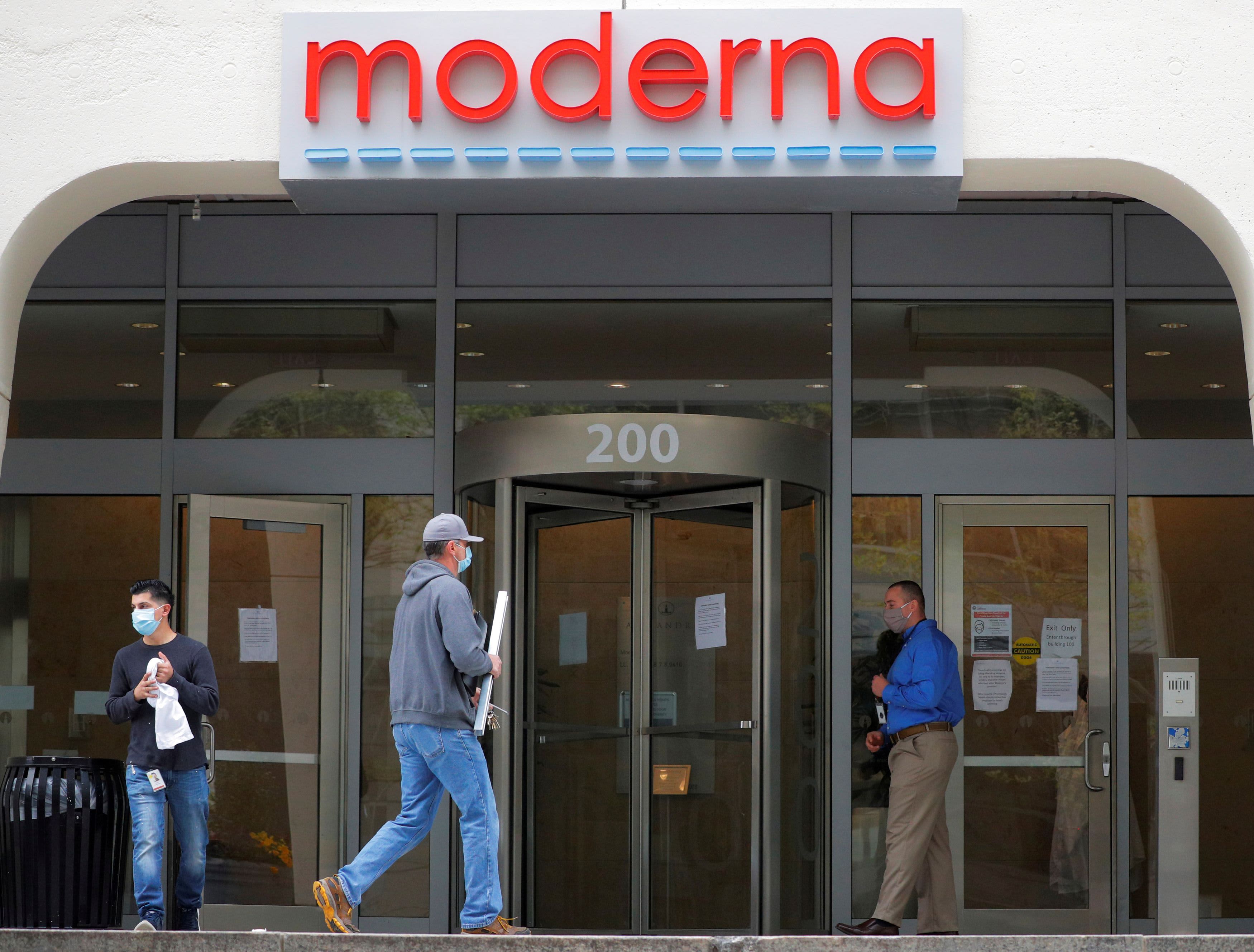
Moderna’s shares rose 12% on Wednesday after the biotech company released promising data on its potential coronavirus vaccine trial, saying it generated a “robust” immune response.
The vaccine candidate produced neutralizing antibodies, which scientists believe is important for developing immunity to the virus, in the 45 patients evaluated in the trial, Moderna scientists reported Tuesday night in the New England Journal of Medicine. Furthermore, the antibodies that were produced were higher than those observed in people who recovered from Covid-19.
The recently released data “sets us on a positive path to a larger phase three trial with which we hope to demonstrate safety and efficacy,” Moderna medical director Tal Zaks said on CNBC’s “Squawk Box” on Wednesday. .
Scientists caution that the phase one study was small, with only 45 individuals who were all healthy, and the results may differ for other populations, such as those with underlying health conditions.
“I think we have an ethical obligation to advance this vaccine as quickly as possible given the unmet need on the one hand and what science allows us to do on the other,” Zaks said. “I think it behooves us to do this in a responsible, judicious way that takes into account the emerging understanding of the safety profile and I think we are doing it by making sure that our phase three is a great phase three.”
Public health officials say there is no return to “normal” until there is a vaccine. There are no FDA-approved drugs or vaccines for the coronavirus, which has infected more than 13 million people worldwide and has killed at least 578,600 as of Wednesday, according to data compiled by Johns Hopkins University.
A sign marks the headquarters of Moderna Therapeutics, which is developing a vaccine against coronavirus disease (COVID-19), in Cambridge, Massachusetts, May 18, 2020.
Brian Snyder | Reuters
Moderna’s experimental vaccine contains genetic material called messenger RNA, or mRNA, that scientists hope will cause the immune system to fight the virus. The new data is raising hopes that there may be a safe and effective vaccine to prevent Covid-19 by the end of the year or early 2021.
In the initial testing stage, it was led by the National Institutes of Health, Each participant received a dose of 25, 100, or 250 micrograms from the vaccine candidate, with 15 people in each dose group. Participants received two doses of the potential vaccine. No serious side effects were reported, but more than half of the participants reported mild or moderate symptoms, such as fatigue, muscle pain, or pain at the injection site, according to the data.
Moderna announced Tuesday that it will begin its late-stage test for its vaccine on July 27. The test will enroll 30,000 participants at 87 locations, according to ClinicalTrials.gov. Participants in the experimental arm will receive a 100 microgram dose of the potential vaccine on the first day and another 29 days thereafter. Some patients in the trial will also receive a placebo.
Moderna’s effort is one of several working on a possible vaccine for Covid-19. According to the World Health Organization, more than 100 vaccines are being developed worldwide. At least 23 are already in human trials, according to the WHO.
Earlier this month, pharmaceutical giant Pfizer along with German drug maker BioNTech released positive results from its early-human study of a coronavirus vaccine. The company said its vaccine produced neutralizing antibodies in all participants who received two of the 10 or 30 microgram doses after 28 days, according to preliminary data. He said that the levels of neutralizing antibodies were 1.8 to 2.8 times higher than in the recovered Covid-19 patients.
While the results from Moderna and Pfizer are promising, scientists caution that questions remain about how the human body responds once it has been infected with the virus. They say the answers may have important implications for vaccine development, including how quickly it can be deployed to the public.
A critical question among scientists is whether the antibodies produced in response to Covid-19 offer protection against infection again.
Scientists hope that the antibodies offer some degree of protection against Covid-19, but they cannot yet say definitively since the virus was discovered just six months ago. It has not been studied in depth and some patients appear to have been reinfected after recovering from Covid-19.
“I would say there is a lot of optimism,” said Dr. Jonathan Abraham, a professor in the Department of Microbiology and Immunobiology at Harvard Medical School. “But I think optimism is making a lot of assumptions. The assumptions include that what we are looking at now is a type of infection where if you get infected and re-expose yourself soon after, you won’t get infected again.”
Furthermore, a recent study published in Nature Medicine found that antibodies to coronavirus can last only two to three months after a person becomes infected with Covid-19. The researchers examined 37 asymptomatic people, those who never developed symptoms, in the Wanzhou district of China. They compared their antibody response to that of 37 people with symptoms.
Dr. Anthony Fauci, the country’s leading infectious disease expert, has often promoted the possible Moderna vaccine. On Monday, he said he is “cautiously optimistic,” scientists will be able to create at least one safe and effective vaccine by the end of the year or early 2021.
While questions remain, Zaks said Wednesday that scientists have learned about the virus from their relatives of the SARS and MERS coronaviruses. The spike protein, which the virus uses to enter the host cell, is a critical piece of vaccine development, he said.
.